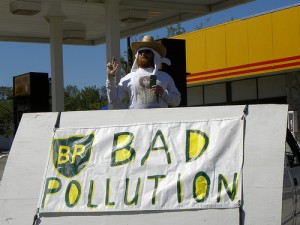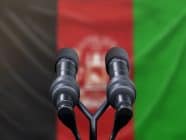Corriere del Ticino, June 19, 2010
In the Gulf of Mexico BP is desperately trying to stop the oil leak, but that’s not the only front it’s fighting on.
The other is that of the media, with interesting and, in many ways, disturbing implications. For starters, the fears of those who believe that American democracy is overly influenced by lobbies have been confirmed. Let’s suppose the accident had occurred off the coast of any other country. What would have happened? Public interests would have prevailed over those of the company and the army or civil protection of said country would have taken over operations to plug the leak. Instead, BP demanded permission to do everything independently. And the White House allowed them to do so, relinquishing control to the oil lobby which preferred to keep a hand on the situation for obvious reasons. A great deal of time has been wasted with no effective solutions discovered. Perhaps in 10 days responsibility will finally be handed over to the army. Yet too little, too late.
Here, the second implication comes into play. Having to control the emergency, BP designed a communication campaign aimed at dissimulating reality and limiting damage to its reputation.
How? First, by manipulating the numbers. We now know that many more barrels of crude oil have leaked into the sea than BP originally admitted to and that the multinational also tried to conceal other highly sensitive information. For example, top management declared that the slick was on the surface of the sea only, while in practice the solvents used caused huge accumulations of oil below the surface. The resultant damage is enormous. But the world only became aware when Jacques Cousteau’s son dove down and filmed what was happening. Despite the evidence, British Petroleum continues to deny this.
BP then applied the “Google washing” technique which influences the ranking of particular pages that turn up in a search. So, if you entered the words “oil and leak” in Google, the first links in the search results were “find out how BP is helping.” The British company also bought advertising space, again on Google, to reinforce the effect.
The Facebook population denounced this manoeuvre, and the widespread agreement it received partly neutralised it, but not completely. Even although the general opinion remains critical, BP still managed to limit the damage to its image, working in other directions.
For example, BP recruited several PR companies and hired Anne Womock-Kolton, Dick Cheney’s spin doctor, in tandem with the production of dozens of television commercials in which the number one of the company – Tony Hayward – demonstrates contrition and penitence. It’s a pity, mind you, that during a press conference he quipped, “Since the accident I haven’t had a life. I’d like my life back,” which sparked a wave of indignation considering the environmental damages and the people whose lives have, in fact, been ruined but who do not enjoy his financial resources. BP also recruited personalities of international renown such as Romano Prodi (who in truth was already a consultant to the company and denies that he received an assignment ad hoc), Jos Bolten, former Chief of Staff to George W. Bush, and Peter Sutherland, former chairman of BP and current chairman of Goldman Sachs.
BP spent a great deal on stopping the leak, but also several million on fighting the war of information, using ethically debatable techniques.
Tags: Anne Womock-Kolton, BP Oil Leak, Environmental Damage, Google Washing, Jos Bolten, Media Manipulation, Oil Lobbies, Peter Sutherland, Public Opinion, Public Relations, Romano Prodi, Tony Hayward, White House













































